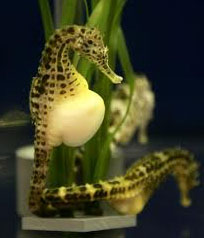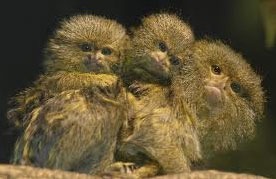 All forms of beauty, from animals to plants and fruits to flowers, both above and below the ground, and all the details therein manifest the power and knowledge behind our Lord’s infinite creative artistry. We see the titles of our Lord in the way a living thing protects its young, the attributes it exhibits in that protection and the lengths it goes to in order to keep its offspring from harm. We witness our Lord’s title of the “al-Halim” – the very gentle – in the behavior that animals display toward their young.
All forms of beauty, from animals to plants and fruits to flowers, both above and below the ground, and all the details therein manifest the power and knowledge behind our Lord’s infinite creative artistry. We see the titles of our Lord in the way a living thing protects its young, the attributes it exhibits in that protection and the lengths it goes to in order to keep its offspring from harm. We witness our Lord’s title of the “al-Halim” – the very gentle – in the behavior that animals display toward their young.
Fathers, as much as mothers, assume responsibility for caring for their young in the animal world. These features are more prominent in certain animals. For example, among such large and flightless birds as the emu and rhea it is the male that builds the nest and feeds the young.
The father is also prominent when it comes to caring for the young among some fish. Such as the male needle fish and sea horse. Like the sea horse, it is the male needle fish that lays the eggs.
Males are also prominent in caring for the young among such animal species as the silk monkey and marmoset, two kinds of primate. When they learn their mates are pregnant, hormones and the dendrites in these animals’ brains undergo a change. They even begin gaining weight, ready to carry a heavy load.
Female silk monkeys and marmosets generally give birth to twins, and right from birth it is usually the father that carries them. It is amazing how an animal prepares for birth by finding out that its mate is pregnant, how it assumes care for the young right from the moment of birth, and how it works out it will have to carry them about and will need the strength to bear the weight of twin babies as it leaps from tree to tree.
It is amazing how an animal prepares for birth by finding out that its mate is pregnant, how it assumes care for the young right from the moment of birth, and how it works out it will have to carry them about and will need the strength to bear the weight of twin babies as it leaps from tree to tree.
It is also astonishing the way that hormonal changes take place in the father’s totally different body when it learns that its mate is pregnant. An animal obviously cannot display the intelligence needed to make such a plan by itself. There is also no question of an animal knowing anything about hormones or the dendrites in its brain. It is definitely our Almighty Lord, the Creator of the worlds, who manifests these physical changes and the feelings of care, protection and affection in the animal, as a manifestation of His title of “Ar-Rahman Ar-Rahim” – the most compassionate of the compassionate. It is Allah, who enfolds and pervades all places and all things, who gives rise to these changes in the father’s body at just the right time by commanding them to “Be!”
Once the twin babies are born, they cling onto the warm area between the father’s shoulder blades where they can be most comfortable. If the babies start crying, it is again the father’s job to pick them up and pacify them.
Among marmosets and silk monkeys, it is not the job of the mother, who has to suckle the babies, to give the young her own food. It is generally the fathers who display such enormous altruism as to give their young their own food..jpg) Our Lord has ordained a measure and balance in all things, living or not. The physical characteristics we see in living things, and all their social behavior, take place with our Lord’s approval. The way that all life forms reproduce and spread as whole communities across the world also happens under our Lord’s control. As Allah reveals in one verse:
Our Lord has ordained a measure and balance in all things, living or not. The physical characteristics we see in living things, and all their social behavior, take place with our Lord’s approval. The way that all life forms reproduce and spread as whole communities across the world also happens under our Lord’s control. As Allah reveals in one verse:
Among His Signs is the creation of the heavens and earth and all the creatures He has spread about in them. And He has the power to gather them together whenever He wills. (Surat ash-Shura, 29)
Reference:
12 September 2010, Daily Sabah, The New York Times


